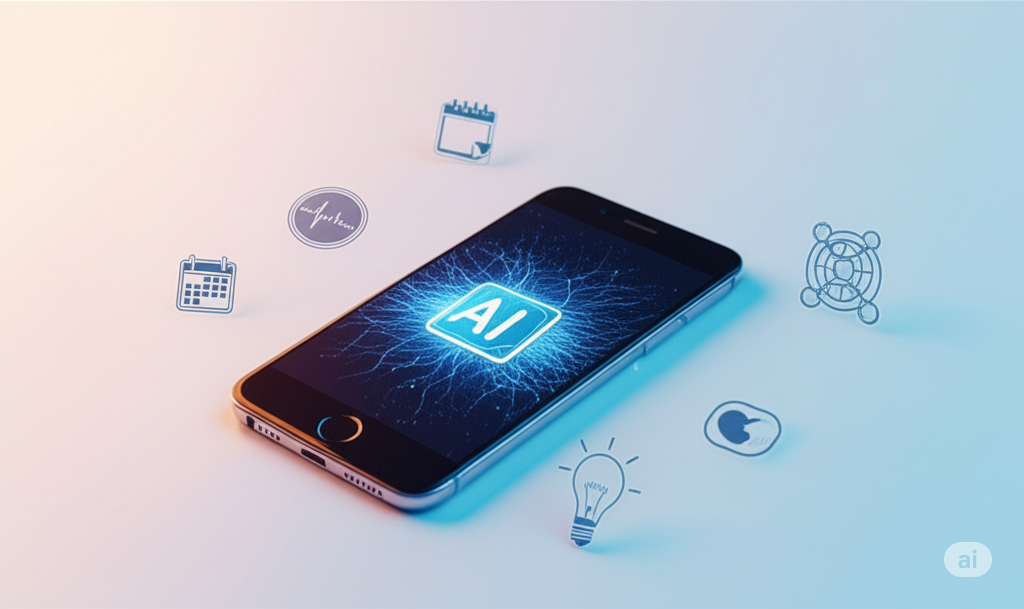AI in Your Pocket: The Rise of Personal AI Assistants & How They'll Reshape Daily Life in 2025/2026 and Beyond
The buzz is undeniable and growing louder. As we navigate 2025 and look towards 2026 and the years that follow, the artificial intelligence that once felt like science fiction is now comfortably settling into our pockets, poised to redefine the contours of our daily existence for the foreseeable future. This isn't just about smarter voice commands; we're witnessing the dawn of proactive, context-aware personal AI assistants that promise a future of enhanced productivity, unprecedented convenience, and deeply personalized experiences.
The rapid advancements in Generative AI are at the heart of this ongoing transformation. Reports from mid-2025 by global consultancies like PwC and McKinsey have already highlighted the seismic shift AI is bringing to the workplace and beyond, setting the stage for trends that will only accelerate. PwC's "2025 Global AI Jobs Barometer," for instance, pointed to AI's role in significantly boosting productivity growth and creating new job opportunities. Similarly, McKinsey's findings in "The State of AI in 2025" revealed an acceleration in AI adoption and the critical need to redesign workflows. This momentum in the professional sphere is a clear indicator of the sophisticated AI capabilities continuously filtering into consumer applications. Consumers are no longer just curious; they are increasingly reliant on AI's practical applications to navigate the complexities of modern life, a trend that will undoubtedly intensify.
While the novelty of new AI applications keeps the topic trending, the underlying human desires these technologies serve are timeless. The quest for greater efficiency, seamless convenience, and assistance tailored to our individual needs has always been a driving force of innovation. "Smart assistants," "AI tools," and "future of daily life" are perennial search queries, reflecting a continuous societal interest in leveraging technology for a better life. This makes the evolution of personal AI assistants an evergreen subject, offering ongoing practical advice on integrating these powerful, evolving tools.
Beyond Basic: The New Breed of AI Companions Evolving
Forget the early days of voice assistants that primarily reacted to simple commands. The personal AI assistants of 2025, 2026, and beyond are rapidly evolving into sophisticated, proactive, and context-aware companions. Powered by advanced large language models (LLMs) and the significant rise of "Agentic AI" – systems that can autonomously plan, learn, and execute complex multi-step tasks – these assistants are designed to understand your needs more deeply, anticipate your actions more accurately, and seamlessly integrate into the fabric of your daily routines. The trajectory is clear: AI will become an even more intuitive and indispensable part of our lives.
These AI powerhouses won't just reside on your smartphone. Expect them to be deeply embedded within an ever-expanding array of smart devices – from wearables and home hubs to your car, workplace tools, and future innovations we haven't yet imagined. The key is seamless, ambient intelligence, allowing for a cohesive and intuitive user experience across your entire digital and physical ecosystem.
Practical Magic: How AI Will Augment Your Daily Life in the Coming Years
The applications of these advanced personal AI assistants are vast and will continue to be transformative. Here are some key ways they are set to reshape daily routines in 2025, 2026, and further into the future:
- Hyper-Personalized Scheduling & Proactive Task Management: Imagine an assistant that doesn't just remind you of appointments but intelligently reorganizes your schedule based on your evolving priorities, energy levels, and even unforeseen disruptions, learning and improving over time. AI tools will proactively manage your to-do lists, delegate tasks where appropriate (perhaps to other specialized AI agents!), and ensure you stay on track with minimal cognitive load. The efficiency gains here will compound as the AI becomes more attuned to individual work styles.
- Intelligent Content Curation, Creation, & Synthesis: Your AI assistant will become an increasingly discerning personalized content curator, sifting through the ever-growing deluge of online information to deliver news, articles, research, and entertainment tailored to your specific interests and evolving preferences. Beyond consumption, generative AI capabilities mean these assistants will help draft more nuanced communications, summarize complex information succinctly, generate diverse creative ideas, and assist in creating sophisticated presentations, code, or multimedia content.
- Real-Time Universal Language Translation & Cultural Nuance: Language barriers will continue to diminish as AI assistants offer increasingly sophisticated and contextually aware real-time translation. This will extend beyond literal translation to understanding cultural nuances, idioms, and intent, fostering deeper understanding in international business, travel, and global collaboration.
- Proactive & Predictive Health & Wellness Monitoring: Integrated with advanced wearable technology, smart home sensors, and health records (with user consent), personal AI will offer proactive and even predictive insights into your physical and mental well-being. They'll analyze trends, identify potential risks earlier, and provide highly personalized recommendations for preventative care, lifestyle adjustments, and mental wellness strategies, potentially integrating with telehealth services for seamless support.
- Intelligent & Autonomous Task Automation & Delegation: From managing increasingly complex smart home ecosystems and optimizing energy consumption to handling multi-step routine online tasks like travel booking, comparative shopping, or managing subscriptions, AI assistants will take over a broader range of mundane and complex tasks. The rise of specialized AI agents working in concert will enable sophisticated workflow automation previously unimaginable for personal use.
Navigating the Future: Privacy, Security, and Responsible Use in an AI-Driven World
The immense power and deep integration of personal AI assistants naturally intensify important questions about privacy, data security, and ethical use. As these tools learn more intimately about our habits, preferences, private conversations, and personal information, the potential for misuse, bias, and security vulnerabilities grows. Concerns range from unauthorized data access and the creation of highly detailed, potentially exploitable personal profiles to the ethical implications of AI decision-making, the challenge of data ownership, and the increasing sophistication of deepfakes or manipulated information.
Users, developers, and policymakers must collaboratively prioritize responsible AI practices. Here are some tips for navigating this evolving landscape safely and effectively:
- Be Vigilant with Permissions & Data Sharing: Continuously understand what data your AI assistant is accessing, why, and with whom it might be shared. Regularly review app permissions and default settings, limiting access to only what is essential for desired functionalities.
- Demand Transparency & Understand Privacy Policies: Take the time to configure the privacy settings on your AI assistants and associated devices. Scrutinize data handling policies and favor services from companies with transparent, ethical, and robust privacy and security frameworks.
- Employ Strong Security Hygiene: Use strong, unique passwords (or passkeys) for your devices and AI accounts. Enable multi-factor authentication (MFA) universally. Keep software updated to patch vulnerabilities.
- Think Critically & Verify AI Output: Remember that AI, while increasingly capable, is not infallible and can reflect biases present in its training data or make errors. Always use your critical judgment and verify information, especially for important decisions or sensitive topics.
- Be Cautious with Sharing Highly Sensitive Information: Exercise extreme caution when sharing highly sensitive personal, financial, or confidential information with AI assistants. Understand where that data is stored, how it's protected, and who might have access to it.
- Stay Informed & Advocate for Ethical AI: The field of AI is evolving at an exponential rate. Keep abreast of new developments, potential risks, emerging regulations (like the EU AI Act), and best practices for safe and ethical usage. Advocate for responsible AI development and deployment.
The rise of personal AI assistants in 2025, 2026, and the years beyond marks a significant, ongoing leap towards a more integrated and intelligently assisted future. By understanding their evolving capabilities, embracing their potential, and navigating their challenges with awareness, critical thinking, and a commitment to ethical principles, we can harness the power of AI in our pockets to truly reshape our daily lives for the better, for years to come.
Please login to leave a comment.


 Rakesh Rajbhat
Rakesh Rajbhat



